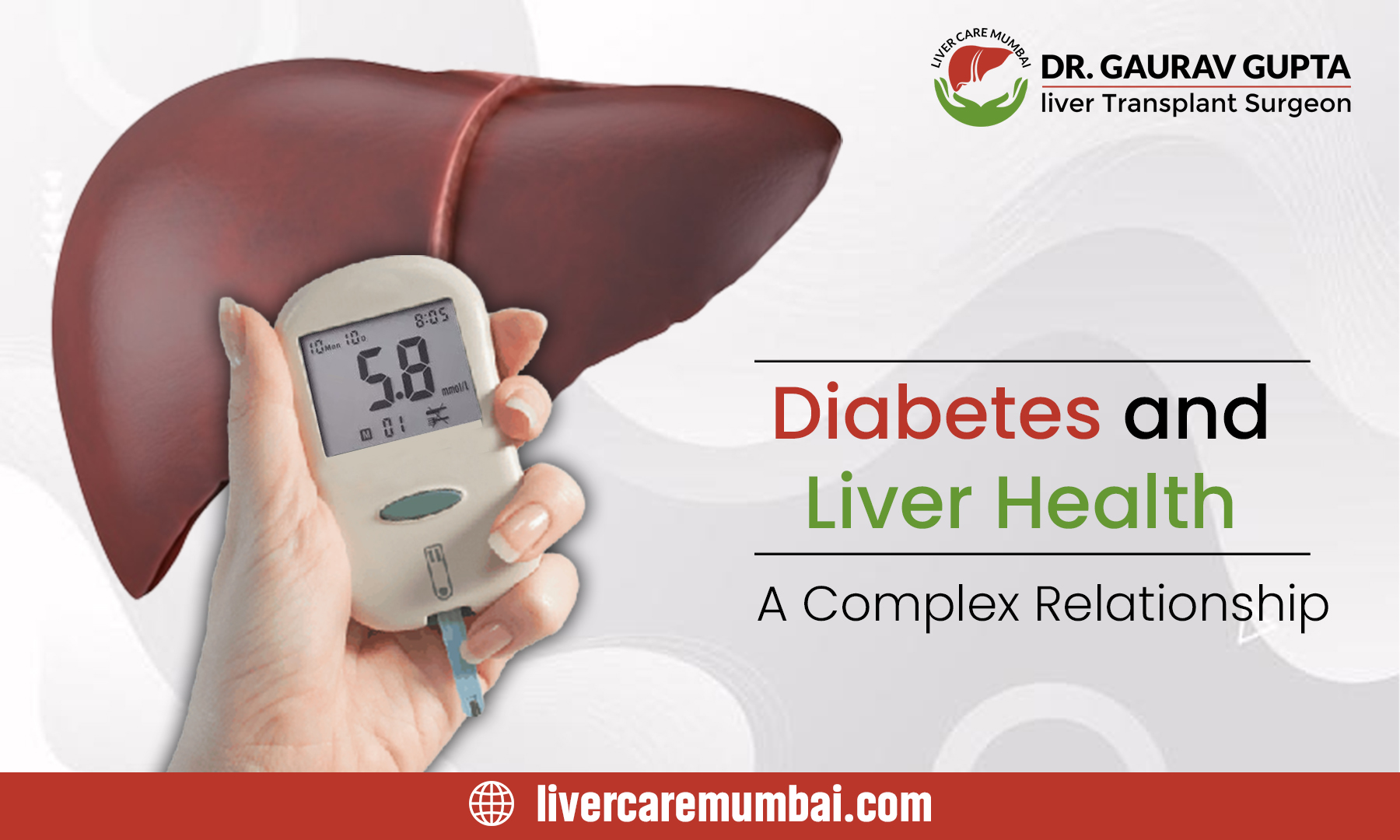Diabetes and Liver Health: A Complex Relationship
Diabetes and liver health share an intricate relationship that has garnered significant attention in recent years. The prevalence of both conditions is on the rise, making it crucial to understand the interplay between them. While diabetes primarily affects blood sugar regulation, it can have profound effects on liver function. In this blog, we will understand the complex relationship between diabetes and liver health.
Non-Alcoholic Fatty Liver Disease (NAFLD):
One of the most common liver conditions associated with diabetes is non-alcoholic fatty liver disease (NAFLD). It occurs when excess fat accumulates in the liver, leading to inflammation and potential liver damage. Studies have shown that individuals with diabetes are more likely to develop NAFLD, with insulin resistance and elevated blood sugar levels playing a significant role in its progression.
Insulin Resistance and Liver Function:
Insulin resistance, a hallmark of type 2 diabetes, occurs when cells become less responsive to insulin. The liver plays a crucial role in regulating blood sugar levels by storing and releasing glucose as needed. However, in the presence of insulin resistance, the liver may overproduce glucose, contributing to elevated blood sugar levels. Over time, this can strain the liver and increase the risk of liver-related complications.
Diabetic Hepatopathy:
Diabetic hepatopathy refers to liver abnormalities specific to individuals with diabetes. It encompasses various conditions such as hepatomegaly (enlarged liver), abnormal liver enzymes, and liver fibrosis. These complications can arise due to factors like long-standing diabetes, obesity, and poor blood sugar control. Regular monitoring of liver function is essential for individuals with diabetes to detect and manage these potential complications.
Inflammation and Liver Health:
Inflammation is a common feature in both diabetes and liver diseases. Chronic low-grade inflammation, seen in conditions like obesity and diabetes, can contribute to liver damage. In turn, liver inflammation can exacerbate insulin resistance and further impair glucose regulation. This inflammatory loop highlights the importance of managing both diabetes and liver health through lifestyle modifications, medication, and targeted therapies.
Lifestyle Modifications:
Managing diabetes and promoting liver health often go hand in hand. Adopting a healthy lifestyle is crucial for both conditions. A balanced diet rich in fruits, vegetables, whole grains, and lean proteins can support liver health and help regulate blood sugar levels. Regular physical activity has multiple benefits, including improved insulin sensitivity and liver function. Additionally, weight management plays a vital role, as obesity is a risk factor for both diabetes and liver diseases.
The relationship between diabetes and liver health is multifaceted and requires comprehensive management strategies. Controlling blood sugar levels, addressing insulin resistance, and promoting liver health through lifestyle modifications are vital steps. Regular monitoring with Liver Specialist is crucial to detect and manage potential liver complications associated with diabetes. By understanding and addressing the complex relationship between diabetes and liver health, individuals can take proactive steps to maintain optimal overall well-being.

